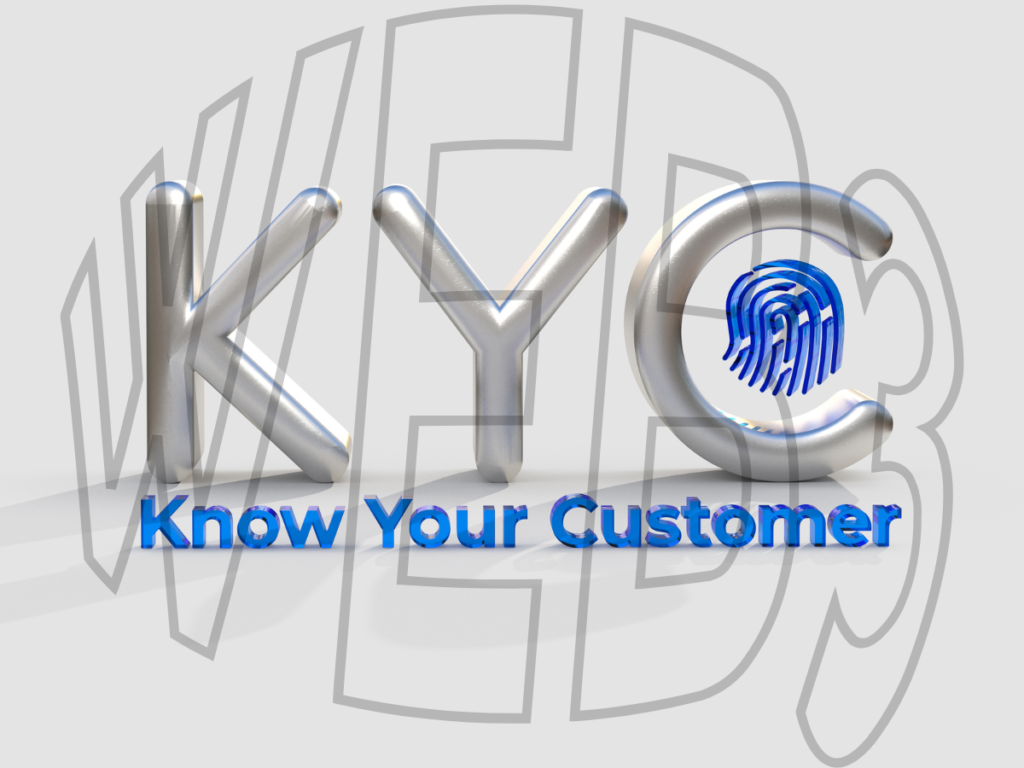This essay explores the revolutionary impact of Web3, the decentralized web, on Know Your Customer (KYC) data in technology and banking.
The rise of Web3, often known as the decentralized web, is poised to alter how Know Your Customer (KYC) data is handled and used in the constantly changing worlds of technology and banking. Decentralized identity management is made possible by Web3’s use of blockchain technology, giving users more control over their personal data. The way organizations and people interact could be completely changed by this innovative method to KYC data, which also offers improved security, privacy, and effectiveness. In this essay, we examine Web3’s effects on KYC data, as well as its advantages and potential effects on identity verification in the future.
Web3: Redefining Decentralized Identity
Web3, which moves away from conventional centralization and toward a decentralized model, marks a paradigm shift in the development of the internet. The idea of decentralized identity, commonly referred to as self-sovereign identity (SSI), is at the core of Web3. SSI gives people the ability to independently maintain their own digital identities, in contrast to conventional identity management systems where personal data is stored and controlled by centralized authority. Individuals can selectively share their verified identify attributes with different service providers using cryptographic techniques without jeopardizing their entire identity.
Web3’s Effect on KYC Data
Because Web3 is decentralized, KYC procedures benefit from increased data security and privacy. Immutable blockchain networks are used to store KYC data, lowering the possibility of data breaches and unauthorized access. People have more control over who has access to their personal information thanks to cryptographic keys that grant access to particular data points.
Additionally, Web3 simplifies KYC procedures by doing away with the requirement for repeated verification. Individuals can share the authenticated attributes with other entities after confirming their identification with a reputable service provider. This efficient method not only saves time, but also lessens the need for consumers and organizations to constantly go through KYC verification.
Decentralized identification also firmly places individual control over personal data in their hands. As a result, users now have full control over their KYC data and can provide or withdraw consent for data access as necessary. This empowerment encourages openness and trust in the exchange of data.
Individuals are able to effortlessly carry their verified identity attributes across various platforms and services thanks to Web3’s decentralized identification. When conducting cross-border business, people can verify their identities only once and then use the validated qualities everywhere in the world because to this portability.
The final benefit of using blockchain technology is that it creates an audit trail of data access and sharing that is transparent and unchangeable. This feature improves regulatory compliance because it makes it simple for firms to show that they are following data protection laws.
The Effects of Web3 on KYC Data in the Future
1. Traditional Identity Verification Methods Are Being Disrupted
Traditional identity verification techniques that rely on centralized databases and third-party intermediaries are challenged by Web3’s decentralized identification. For a faster and more secure KYC procedure, businesses are likely to utilize SSI systems.
2. Financial Inclusion Increasing
By allowing those without conventional identification credentials to access financial services, Web3’s decentralized identity has the potential to increase financial inclusion. Individuals can access financial products and services as long as they can demonstrate the accuracy of particular identifying features.
3. The Power Balance Changing
The power balance in data sharing moves from corporations to individuals with decentralized identification. Users have the power to manage their personal data, selecting with whom and for what purposes to share it. Consumer trust and loyalty may rise as a result of this change.
4. Cooperation and Interoperability
Businesses and organizations may work together to create interoperable identity systems as Web3 develops popularity. Through the utilization of their verified identity attributes across different platforms, individuals will be able to enjoy seamless cross-platform interactions.
In the end
KYC data management will be revolutionized by Web3’s decentralized identification, which offers improved security, privacy, and effectiveness. A more inclusive and user-centric approach to identity management will be encouraged by this revolutionary influence, which will upend conventional identity verification techniques.
The management and use of KYC data in the financial services sector will change as a result of this change. Marketing departments must manage the difficulties of establishing trust, managing privacy issues, and ensuring regulatory compliance as they work to make sharing KYC data appealing to individuals.
Businesses must seize the chances that Web3 offers for a more safe, open, and user-controlled KYC data ecosystem as it continues to influence the future of banking and technology.
Finally financial services can usher in a new era of user-controlled KYC data, where people are empowered to maintain their identities securely and confidently, by embracing its revolutionary potential and implementing successful tactics.












